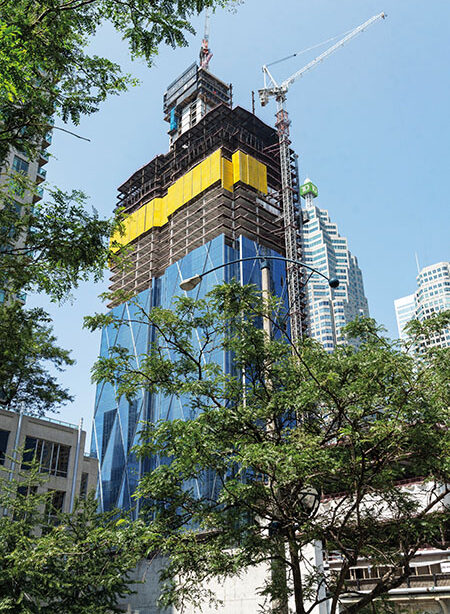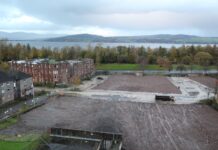
FORMWORK and scaffolding provider Doka has announced it has become the first company in its industry to commit to the Science Based Targets initiative (SBTi).
The company revealed the move reflects its ambition to reduce emissions in line with the latest scientific guidance and contribute to limiting global warming to 1.5°C. The commitment to the SBTi is a ‘cornerstone’ of Doka’s Net Zero 2040 sustainability strategy.
“The transition to net zero is a complex challenge that requires both ambition and resilience,” said Robert Hauser, CEO of Doka. “By committing to the SBTi, we are demonstrating that sustainability is not just a buzzword for us – it’s serious business. We believe that sustainable practices and solutions are the key to helping our customers thrive in a future-proof, competitive construction industry.”
Doka has committed to reducing its Scope 1, 2, and 3 emissions in line with the SBTi absolute reduction methodology, ensuring its climate goals are aligned with the Paris Agreement’s 1.5°C trajectory. By 2030, this means a minimum reduction of at least 42% in both Scope 1 and Scope 2 emissions. Scope 3 emissions, which encompass all indirect emissions generated outside the company’s direct operations, must also see a reduction of 42%.
Robert Hauser added, “We are constantly collaborating with our customers and suppliers to develop safer, more efficient, and climate-friendly solutions. Our commitment to SBTi solidifies our dedication to cutting greenhouse gas emissions, not just within Doka but across our entire supply chain.”
Doka has already implemented measures to reduce emissions, such as increasing the use of renewable energy across its operations. At its Austrian HQ, the firm has transitioned to 100% renewable electricity, supported by the expansion of photovoltaic systems and a green energy switch.
By refurbishing its formwork after every use in dedicated service centres, Doka said it ensures that material and resource consumption is minimised, keeping products in circulation for extended periods. The company is also exploring the use of recycling, low-carbon materials in its formwork systems and has pioneered the calculation of the Product Carbon Footprint (PCF) for its portfolio of over 7,000 products.








